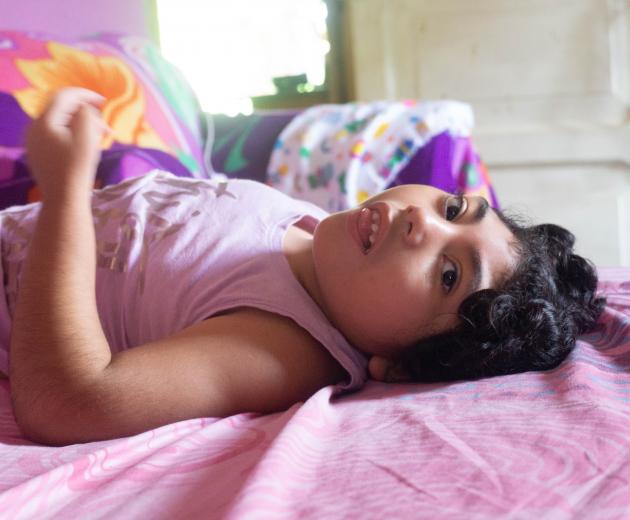Published date: 14 Jul 2021
"Hearing my baby cry was the most beautiful thing that could have ever happened to me," says Silvia, a 26-year-old mother who lives in Metalío, western El Salvador.
This is something most moms would say when their babies are born. Except Silvia was told that her daughter had “no life expectancy” and she might not even cry when born.
The year was 2016. The year when the Central American nation grappled with a Zika outbreak, and over 350 pregnant women like Silvia found that they and their babies were infected with the Zika virus – a disease transmitted by mosquitoes.
Silvia’s baby daughter, Francisca, was born with most of these symptoms. Yet, fast-forward to now, Silvia brims with joy as she declares her daughter - or “the little one” as she is affectionately called - the greatest motivation in her life.
That motivation started during her pregnancy, after learning about Zika and her daughter being affected by it – a moment she describes as one of the hardest she has ever experienced.
“Her head was very small at six months and was not growing, but now she has grown, and everyone is amazed to see her. Even when they interact, she is always happy. It fills me with joy when they tell me: How beautiful your baby is!" says Silvia as her daughter laughs when seeing her.
Her greatest hope now? To see Francisca walk, happy and accomplished. To make this happen, Silvia uses the greatest love in the world: the love of a mother.
"We wake up, I feed her, and we start spending time together. We dance, we sing. I do a full therapy every day, and she is the one who enjoys it the most because she is happy and does not bother anyone," she explains smiling, with Francisca in her arms, in front of their home surrounded by lush mango trees.
The therapy entails 40 minutes of Francisca using a ball and Silvia stretching her daughter’s legs to improve movement and relax the muscles. But it is not only Silvia helping her daughter. Francisca has also helped her and her husband. She has brought them closer, and continues to unite them, says Silvia.
“My partner, his family and my family love her. She is not discriminated against at all and everyone treats her well. In fact, my father says that she is his favorite granddaughter,” she adds happily.
Despite what her family went through, Silvia considers that most people in her community are not aware of the risks that a Zika-transmitting mosquito can cause, though their surrounds offer the perfect setting for mosquitoes to breed – water and heat.
Back in 2016, Metalío was teaming with health promoters and doctors spreading messages about the risks of Zika – which was new - and how to prevent getting infected.
El Salvador’s Ministry of Health made a noteworthy effort since they had experience in combating other mosquito-borne diseases such as dengue, Chikungunya, and malaria.


